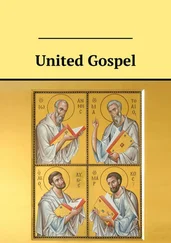Orson Whitney - Gospel Themes
Здесь есть возможность читать онлайн «Orson Whitney - Gospel Themes» — ознакомительный отрывок электронной книги совершенно бесплатно, а после прочтения отрывка купить полную версию. В некоторых случаях можно слушать аудио, скачать через торрент в формате fb2 и присутствует краткое содержание. Жанр: foreign_prose, foreign_religion, Философия, foreign_psychology, foreign_antique, на английском языке. Описание произведения, (предисловие) а так же отзывы посетителей доступны на портале библиотеки ЛибКат.
- Название:Gospel Themes
- Автор:
- Жанр:
- Год:неизвестен
- ISBN:нет данных
- Рейтинг книги:3 / 5. Голосов: 1
-
Избранное:Добавить в избранное
- Отзывы:
-
Ваша оценка:
- 60
- 1
- 2
- 3
- 4
- 5
Gospel Themes: краткое содержание, описание и аннотация
Предлагаем к чтению аннотацию, описание, краткое содержание или предисловие (зависит от того, что написал сам автор книги «Gospel Themes»). Если вы не нашли необходимую информацию о книге — напишите в комментариях, мы постараемся отыскать её.
Gospel Themes — читать онлайн ознакомительный отрывок
Ниже представлен текст книги, разбитый по страницам. Система сохранения места последней прочитанной страницы, позволяет с удобством читать онлайн бесплатно книгу «Gospel Themes», без необходимости каждый раз заново искать на чём Вы остановились. Поставьте закладку, и сможете в любой момент перейти на страницу, на которой закончили чтение.
Интервал:
Закладка:
"Send me!"—coiled 'neath his courtly smile
A scarce concealed disdain—
"And none shall hence, from heaven to earth,
That shall not rise again;
My saving plan exception scorns.
Man's will?—Nay, mine alone.
As recompense, I claim the right
To sit on yonder throne!
"Ceased Lucifer. The breathless hush
Resumed and denser grew.
All eyes were turned; the general gaze
One common Magnet drew.
A moment there was solemn pause—
Listened Eternity,
While rolled from lips Omnipotent
The Father's firm decree:
"Jehovah, thou my Messenger!
Son Ahman, thee I send;
And one shall go thy face before,
While twelve thy steps attend;
And many more on that far shore,
The pathway shall prepare,
That I, the First, the last may come,
And earth my glory share.
"After and ere thy going down,
An army shall descend—
The host of God, and house of him
Whom I have named my friend.
Through him, upon Idumea,
Shall come, all life to leaven,
The guileless ones, the sovereign Sons,
Throned on the heights of heaven.
"Go forth, thou Chosen of the Gods,
Whose strength shall in thee dwell!
Go down betime and rescue earth,
Dethroning death and hell,
On thee alone man's fate depends,
The fate of beings all.
Thou shalt not fail, though thou art free—
Free, but too great to fall.
"By arm divine, both mine and thine,
The lost thou shalt restore,
And man, redeemed, with God shall be,
As God forevermore.
Return, and to the parent fold
This wandering planet bring,
And Earth shall hail thee Conqueror,
And Heaven proclaim thee King."
'Twas done. From congregation vast
Tumultuous murmurs rose;
Waves of conflicting sound, as when
Two meeting seas oppose;
'Twas finished. But the Heavens wept;
And still their annals tell
How one was Choice of Elohim,
O'er one who fighting fell.
The Way of Salvation
CHAPTER I
Man Helpless.—When Adam and Eve had transgressed the divine command by partaking of the forbidden fruit, it was as if the human race had fallen into a pit, from which they were powerless, by any act of their own, to emerge. They could not climb out, for they did not know how to climb; and even had they known, there was no means by which to climb. Human endeavor, unassisted, could accomplish nothing in the way of deliverance. Man in his mortal condition needed spiritual enlightenment, having forgotten all that he had previously known. In other words, he needed a ladder, that he might climb out of the pit, and that ladder was furnished in the revelation, of the Gospel of Christ. Without it there is no salvation, no exaltation. The Tower of Babel symbolizes the situation: All man's efforts to reach heaven, without divine assistance, must end in confusion and failure.
Redemption by Grace.—The gospel ladder rests upon the rock of Christ's atonement—an act of grace, a free gift from God to all mankind—the wicked as well as the righteous. All profit by it, for, as the result of that atonement, all are brought forth from the grave. And this is eminently just: Adam's posterity were consigned to death for no deed of their own doing. It is fitting, therefore, that their redemption should come unconditionally.
Salvation by Obedience.—But redemption is not salvation, nor salvation exaltation, as already explained. Men must "work out their salvation" (Phillipians 2:12), and gain exaltation by continuous upward striving. Salvation and exaltation, while depending primarily upon the grace of God, are also the fruits of man's acceptance of the gospel, and his steadfast adherence thereto, until it shall have done for him its perfect work. There are degrees of glory—"many mansions" in the great house of God, and the highest are reserved for those who render to the Master of the house the fulness of their obedience.
"Salvation means a man's being placed beyond the power of all his enemies. * * * Until a man can triumph over death, he is not saved. * * * To get salvation we must not only do some things, but everything which God has commanded" ("Joseph Smith's Teachings," pp. 146-150).
Heaven's First Law.—"Order is heaven's first law," says human wisdom. "Not so," says divine inspiration, "obedience is heaven's first law, and order follows as the result." [A]Without obedience, spiritual growth, eternal progress, is impossible. Says Joseph the prophet: "There is a law, irrevocably decreed in heaven before the foundation of this world, upon which all blessings are predicated; and when we obtain any blessing from God, it is by obedience to that law upon which it is predicated" (D&C 130:20,21).
Illustrations of Obedience.—That obedience is required from those who become and remain members of the Church of Christ, should not surprise any intelligent student of political science, nor even a casual observer of the everyday life of men and nations. All governments demand from their people obedience to the laws enacted for the general welfare. Without such obedience, there would be no peace, no protection. This is readily conceded by most men as to human governments; but some people think it strange that divine government should be administered upon like principles, and for similar, though higher, ends.
A friend of mine once said to me: "Why do I need to belong to a church, to subscribe to a creed, or to undergo any ordinance, in order to be saved? I have always been truthful, honest, virtuous, benevolent—why will this not suffice to make my peace with God and pave my way to heaven?"
Aliens and Naturalization.—I answered on this wise: "Let me use a comparison to illustrate the point. Suppose you were an alien, born in Great Britain, in Scandinavia, or in some other foreign land, and you came to America desiring to become a citizen of the United States. When told that you must take out citizenship papers, forswear allegiance to every foreign power, and honor and uphold the Constitution and laws of this Republic, suppose you were to reply: `Why, what is the need of all that? I am a good man, I have always done right, and am clean, moral, and upright in conduct and conversation—why is that not sufficient to entitle me to vote, to hold office, pre-empt land, and enjoy all the rights and privileges of an American freeman?' Do you think such a plea would avail? No, you do not. You see its inconsistency as quickly as would the government unto whom it might be made. You would not expect to become a citizen of the United States upon your own terms. Why, then, should you hope for admittance into God's kingdom upon any other conditions than those which the King himself has laid down?"
Man's Proper Attitude.—Truthfulness, honesty, virtue, and benevolence are precious possessions, inestimable treasures. They enrich the soul under all conditions, outside or inside the kingdom of God; but they are not valuable enough to purchase a passport into that kingdom. We must not count upon our personal qualities, however admirable and commendable, to gain us admission into the divine presence. Man's proper attitude, as a seeker for salvation, is one of humility, not of self-righteousness. When the Pharisee and the Publican prayed in the Temple at Jerusalem, the former thanking the Lord that he was better than other men, and the latter meekly murmuring: "God be merciful to me, a sinner," the Savior, pointing to the Publican, said: That man is justified, rather than the other, "for every one that exalteth himself shall be abased, and he that humbleth himself shall be exalted" (Luke 18:13,14).
Читать дальшеИнтервал:
Закладка:
Похожие книги на «Gospel Themes»
Представляем Вашему вниманию похожие книги на «Gospel Themes» списком для выбора. Мы отобрали схожую по названию и смыслу литературу в надежде предоставить читателям больше вариантов отыскать новые, интересные, ещё непрочитанные произведения.
Обсуждение, отзывы о книге «Gospel Themes» и просто собственные мнения читателей. Оставьте ваши комментарии, напишите, что Вы думаете о произведении, его смысле или главных героях. Укажите что конкретно понравилось, а что нет, и почему Вы так считаете.












